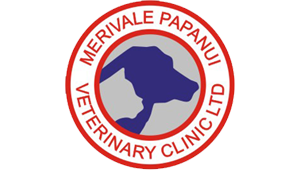Library
-
The pro-opiomelanocortin (POMC) gene, if mutated, can contribute to increased body fat and body weight and increased food motivation in affected dogs. At this time, this gene mutation has only been found in the Labrador Retriever and Flat-coated Retriever and affects the majority of those working as service dogs. This handout explains how the POMC gene mutation was discovered, how it impacts affected dogs, and how you can support your dog if affected.
-
Progressive retinal atrophy (PRA), is a group of degenerative diseases that affect photoreceptor cells in the eyes. With this disease, the cells deteriorate over time, eventually leading to blindness. There are two main forms of PRA recognized in dogs: an early-onset, inherited form called retinal dysplasia, and a late-onset form. PRA is an inherited disease that occurs in many breeds of dogs. When a dog develops PRA, it should be removed from the breeding program, along with its parents and siblings. As PRA progresses, your dog's vision gradually worsens until he becomes completely blind. There is currently no effective treatment for PRA.
-
Medical waste includes needles, syringes, body parts, bodily fluids, feces and medications among other things. This handout addresses some of the ways such waste can be safely disposed.
-
Tumors of the prostate are relatively uncommon in dogs and extremely rare in cats. Clinical signs include bloody urine, or straining to urinate or defecate. Metastasis to the pelvic bone and/or lumbar spine is likely. Diagnosis and treatment options are discussed. Prognosis is considered poor.
-
Prostatic disease can be uncomfortable for a dog, particularly if it causes compression of the urethra or colon. Because there are many diseases of the prostate, it is necessary to perform several tests to determine the exact cause of a patient's condition. This handout provides explanations of the seven most common conditions affecting the prostate and the corresponding approaches to treatment.
-
Enteropathy means any disease of the intestinal system. Protein-losing enteropathy (PLE) is not a specific disease but a group of diseases that cause the loss of proteins from the bloodstream into the gastrointestinal (GI) tract. Symptoms include diarrhea, weight loss, and fluid buildup in areas of the body. Treatment and prognosis are determined by the underlying cause.
-
Pruritus (itching) is a very common skin disorder that can be seen due to allergies or infections affecting the skin. The condition may be resolved if an underlying cause can be identified. Consult your veterinarian about what can be tested for and what treatments can be effective for relief.
-
Pulmonary hypertension means that the peak blood pressure in the arteries of the lungs is much higher than normal. Several abnormalities can lead to high blood pressure in the arteries of the lungs and many of the underlying reasons involve the heart. There are many signs of pulmonary hypertension including exercise intolerance, difficulty breathing with or without exertion/exercise, rapid breathing, coughing, spitting up blood from the lungs, fainting, and more. There are many potential causes of pulmonary hypertension. Several medications are available to treat your dog. It is important to maintain a low-stress environment while any underlying cardiac or respiratory disease is treated and managed. Activity may need to be restricted. It is essential to monitor dogs with pulmonary hypertension for worsening of clinical signs. Periodic physical examinations, blood pressure monitoring, and ultrasound evaluations of the heart will also be important. The long-term prognosis is very guarded for dogs with pulmonary hypertension.
-
A successful life with a family dog starts with great training for your puppy. Planning to set puppies up for success, learning how to use management, positive reinforcement, luring, capturing, and shaping will help owners train their puppies successfully. Positive puppy training and socialization classes are also beneficial for healthy puppies over eight weeks of age.
-
Life with puppies is complicated, and all puppies will sometimes do things their owners find problematic. Using management, planning, supervision, and positive reinforcement for the right behaviors will help puppies succeed, and owners better enjoy their companions.
